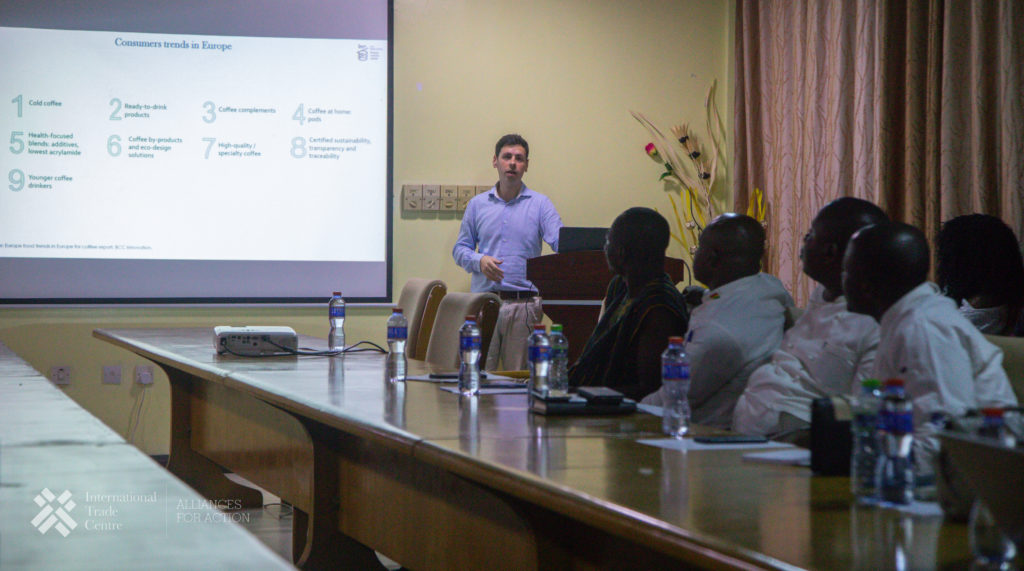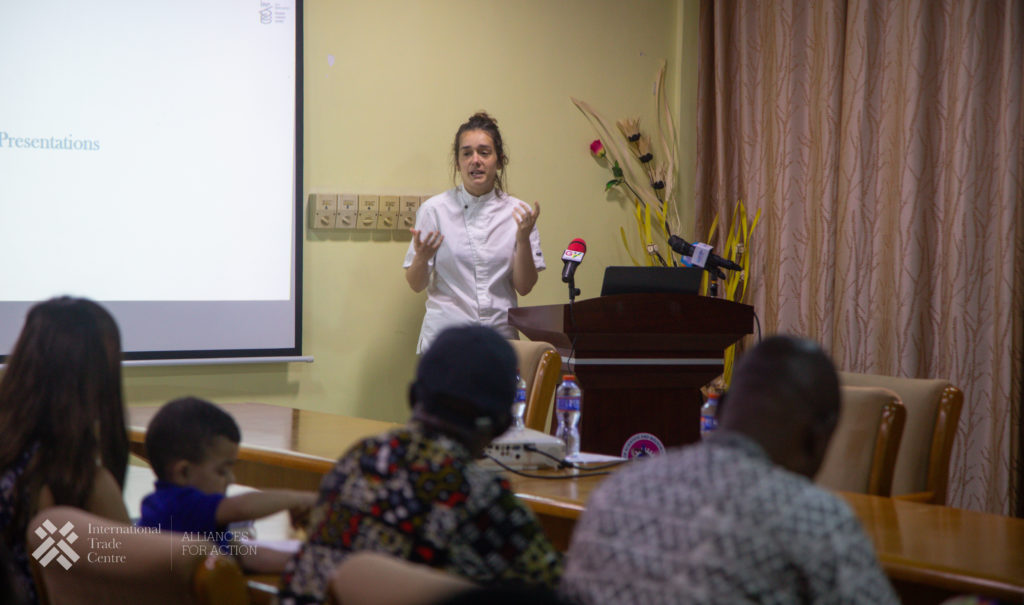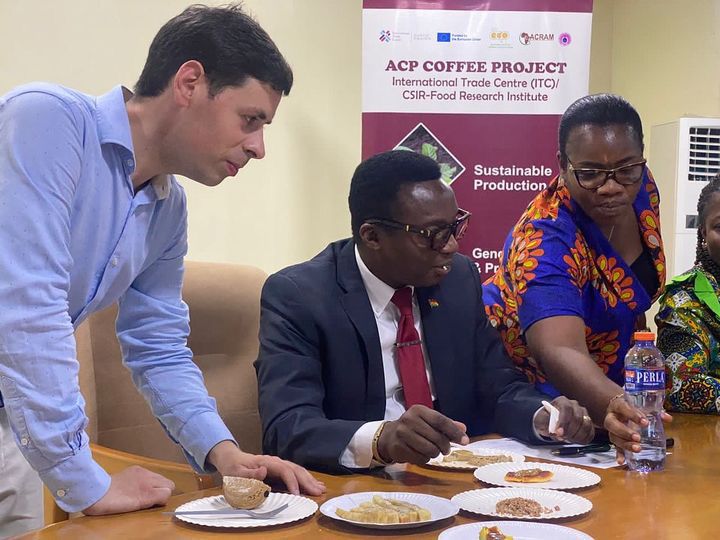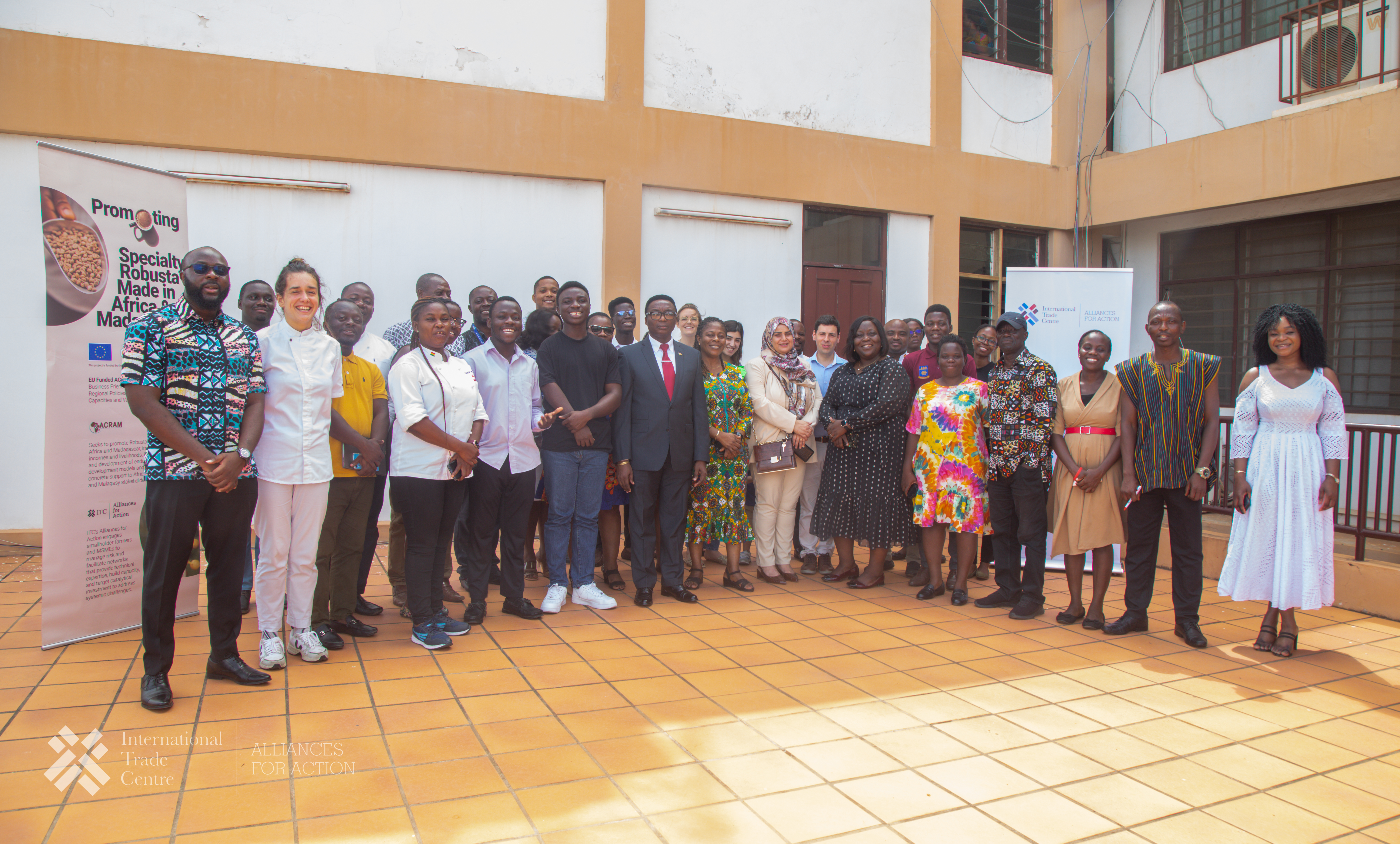Promoting the development of Ghana’s Robusta Coffee value chain
In April, Blanca del Noval, a chef researcher, and Pedro Cueva Rodríguez, an innovation and strategy consultant at BCC Innovation, traveled to Ghana as part of the Gastrovalue project in collaboration with the International Trade Center (ITC) – EU Funded ACP program. The project aims to support business-friendly and inclusive capacities at the national and regional levels while strengthening productivity. BCC Innovation trains small and medium-sized companies in Africa, the Caribbean, and the Pacific to enhance the production and development of value-added products from coconut, cocoa, coffee, and kava.

Del Noval and Cueva visited Accra and the southern area of Volta, one of the regions with the largest coffee crops in the country, to gain insight into the unique aspects of Robusta coffee, including its cultivation and production processes. They also met with the stakeholders involved in the value chain of this product. It’s worth noting that the majority of coffee in Ghana belongs to the Robusta variety, as the country’s climatic conditions and low altitude make it challenging to grow other types such as Arabica.
The main objective of their trip was to raise awareness among the population about coffee consumption and to showcase the commercial and culinary potential that exists in Ghana. Del Noval and Cueva conducted an analysis of the country’s methodology and production methods and engaged with various actors involved in the different stages of the transformation process. This helped them understand their needs and the primary barriers they face in strengthening their value chain.
While in Accra, they visited several local markets, where they had the opportunity to explore representative products of the country and evaluate their potential for creating gastronomic proposals using coffee. Considering these representative products, they organized two CSIR Food Research Institute workshops. These workshops demonstrated the possible uses of coffee as an ingredient in culinary creations that are adapted to the local culture:
- Culinary innovation and recipe development workshop: They developed several recipes using coffee as the main ingredient, such as a meat sauce, coffee crumble with banana mousse, coffee-infused mayonnaise, and even incorporating coffee into an Akpeteshie cocktail—a local liquor made by distilling palm wine.
- Co-creation workshop for prototype development: Collaboratively, they created various prototypes using coffee, such as a spicy sauce seasoned with coffee, an energizing drink combining coffee and fruits, and coffee bags infused with aromatic flavors.
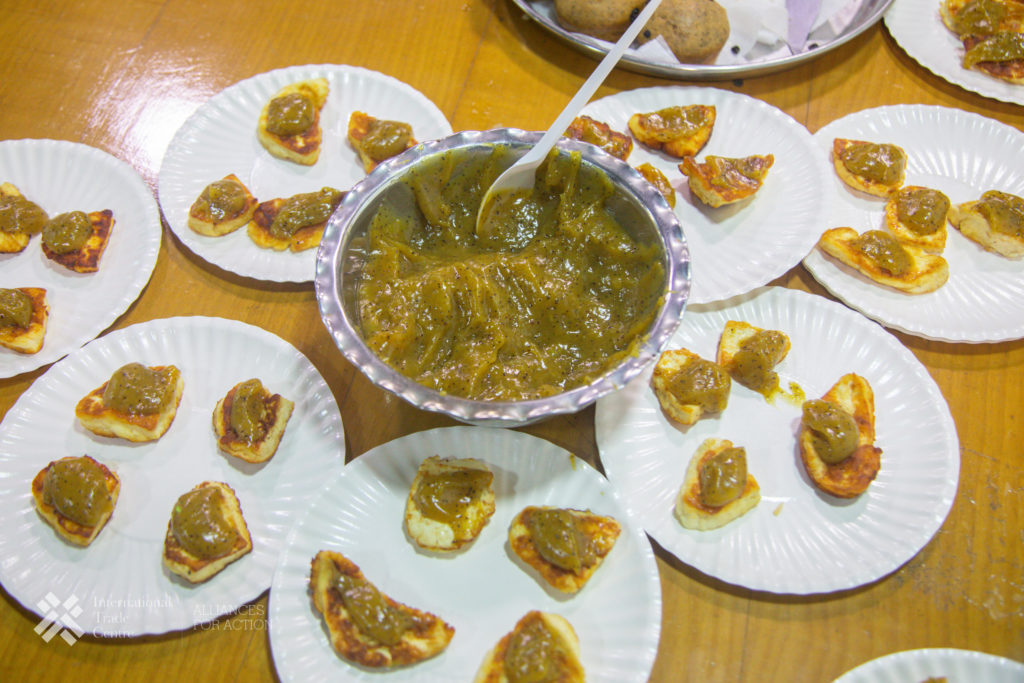
During the first workshop, a collaborative work proposal was introduced, following the cluster association model, where different actors within the value chain can partner, share resources, and build capabilities to enhance competitiveness and increase the value of coffee both within the country and internationally. At BCC Innovation, we believe that gastronomy is a pivotal tool for driving an efficient and sustainable value chain—from production to consumption. Therefore, through projects like this, we aim to contribute to the transformation of gastronomy and the food chain by providing specialized knowledge to companies, territories, and entrepreneurs. This project offers technical support to the Alliances for Action and SMEs supported by the ITC in the target value chains.
